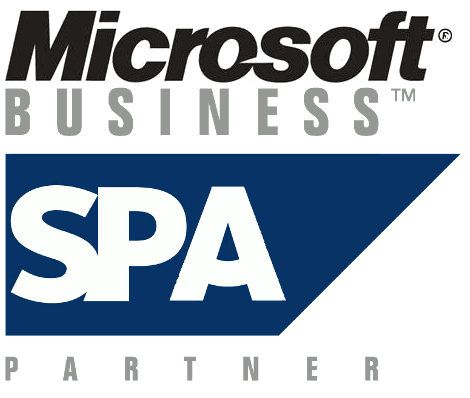12.15.10
Novell, OIN, and AttachMSFT: Why It Confirms Novell Was Trouble All Along
“Our partnership with Microsoft continues to expand.”
–Ron Hovsepian, Novell CEO
Summary: The writings have been on the wall for 4 years, persistently warning that Novell was a ticking time bomb with its growing pile of software patents and growing relationship with Microsoft
NOVELL’S UNIX might still be up for sale, so Novell owning it for the time being is missing the point. It’s many articles like this one which fail to mention the possibility of a UNIX sale. One has to remember that Novell has already decided to sell to Microsoft close to 1,000 patents, mostly software patents. Novell cannot be trusted, so why should AttachMSFT be trusted? Just look what happened to Caldera/SCO. Allies sometimes become enemies for strategic reasons and amoral shareholders. As for the SCO case, delays are bound to become epic as each so-called “bankruptcy hearing” gets cancelled (this happens many times repeatedly, which makes one wonder about the court system). Here is the latest such cancellation (delay until 2011). “Novell Wins Most of the Costs It Asked the Court to Get SCO to Pay” Groklaw says, but time is running out as the company falls into other hands whose interests are foreign.
The Clerk in the US District Court in Utah has signed off on most of the costs Novell asked for from the second SCO v. Novell trial. For the rest, they can ask the judge, as some of the expenses, while the clerk might find them reasonable in a case of this type, can’t be ordered by the clerk. Either side now has seven days to ask the judge to review.
Rick Whiting from CRN says that “Novell Partners See Promise In Attachmate Acquisition”, but the claim seems optimistic (and lacking substance). AttachMSFT is likely to axe some products that partners rely on.
Jack Wallen has published “The Novell deal is done: Let the patent scandals begin”. Therein he repeats the Microsoft-funded Linux libel (from Ken Brown), which sneaks into the news. “Linux was based on Minix,” Wallen claims, but this is utterly false as we clarified before [1, 2, 3]. Here is more from Wallen:
Here’s where I get confused: Linux was based on Minix. Minix was an operating system (Mini UNIX) created by Andrew Tanenbaum designed for education and science. Minix is a UNIX-like operating system, but was built from scratch. There was never any IP infringement on the part of Tanenbaum. When Torvalds decided to create his own operating system, he was just trying to create a “Minix” that would run on x86 hardware (He couldn’t afford the far more expensive hardware required to run Minix). And so Linus Torvalds created Linux. Eventually the GNU applications were added to replace the Minix application. The GNU applications were created by Richard Stallman with the goal of creating free, UNIX-like software from the ground up.
Microsoft insists on getting Linux sued for something, be it false claims relating to Minix, UNIX, and currently Microsoft patents which the company refuses to even name. Microsoft’s Walli (whom we recently mentioned in [1, 2, 3, 4, 5]) continues to promote his employer by playing apologist amid the patents acquisition:
So to me (naively) it looks like Microsoft vacuumed up the Novell portfolio because it could.
It’s almost like saying you can take food from a child because you can. Shame on Microsoft.
Red Hat’s Jan Wildeboer asks: “So why did EMC/VMware back out of the NOVL deal? Questions raised by http://is.gd/ivy2Z MSFT plays a role, ofcourse.” Fascinating revelation (caught also/originally by Groklaw):
Microsoft entered negotiations four to eight weeks before the deal was formally announced, said a fourth source close to the process.
EMC, acting on behalf of VMware, had been representing a consortium of players to be part of the Novell sale, the first source said. When it became clear that the storage company was no longer interested in a transaction, advisors looked elsewhere.
“The Microsoft consortium was able to bridge the gap in valuation that enabled the deal to get done,” the second source noted. Microsoft paid what was considered a “high price” for the IP portfolio, the sources said.
[...]
Microsoft and Golden Gate Capital have a good working relationship so were able to move quickly in negotiating a deal for the patents, the second source said. In 2008, Microsoft invested in Aspect Software, a portfolio company of Golden Gate.
Novell declined to comment for this story. EMC did not respond to a request for comment.
Why could they possibly refuse to comment? Maybe it’s a rhetorical question. Andy Updegrove has posted a followup to his detailed preliminary analysis of the AttachMSFT deal. This time he focuses on the patents Novell has given to Microsoft:
Who are those guys? The first and most obvious question relates to who the other members of CPTN Holdings, LLC (CPTN) the Microsoft syndicate may be. To my knowledge, there has not yet been a leak of this information. As I noted in my previous blog entry, the transaction documents that are made public pursuant to public reporting obligations may never reveal the names, unless one of the consortium members is required to disclose it in one of its own public reporting documents. Presumably that will happen, if it will happen at all, within three to four months, as part of a normal quarterly filing on Form 10-Q.
The second, and far less likely way would be as an indirect result of a filing by CPTN or Attachmate under the Hart-Scott-Rodino Public Improvements Act of 1976 (HSR). Whether or not a filing is required involves a complex analysis of the facts, as summarized in a 20 page Introductory Guide available at the Web site of the Federal Trade Commission (FTC), the agency which receives HSR filings and determines whether or not to permit a transaction described in an HSR filing to proceed.
If the patent acquisition were to be made by Microsoft alone, an HSR filing would clearly be necessary. Whether an acquisition by a consortium with the specific membership of CPTN would be required is a more complex question.
Intriguingly, the 8-K states that one of the conditions for the closing of the patent acquisition will be:
..the expiration or termination of the waiting period (and any extensions thereof) applicable to the consummation of the Merger under the Hart-Scott-Rodino Antitrust Improvements Act of 1976, as amended (the “HSR Act”), and certain other antitrust laws;
Unless this language was careless, it suggests that while the main transaction requires an HSR filing (no surprise there), the patent acquisition would not. Otherwise, there would also be a reference to any HSR filing that, if challenged by the FTC, might prevent the patent sale to go through.
In my last blog entry, I had said that I assumed, but had not had time to look up, whether HSR filings are public; I’ve now had time to take a look, and neither the fact that an HSR filing has been made, nor the text of the filing itself, becomes public. In fact, filings are even exempt from disclosure under the Freedom of Information Act.
Redmonk, an analyst which also receives some payments from Redmond (Microsoft), writes about “The End of Novell” and says the following about these patents:
Of far greater concern to some, however, is Novell’s intellectual property portfolio. As has been well documented, as part of the transaction Novell sold some 882 patents to CPTN Holdings, a consortium that counts Microsoft as a member (more on them here), for $450 million dollars. Although Novell subsequently disclosed that it was retaining its Unix copyrights, this does not satisfy fears regarding the patents. Copyrights, remember, refer simply to a given codebase, while patents refer to the idea or invention behind them. It’s entirely possible, then, that Novell could retain the copyrights to code as Microsoft simultaneously acquired patents that read on same. Questions, therefore, remain: what – specifically – was the intellectual property acquired? More importantly, what’s the intent of purchase: are they being purchased for offensive or defensive purposes? It’s admittedly speculative to extract intent merely from Microsoft’s recent history with respect to intellectual property licensing and litigation, but in the absence of other information this reaction is natural.
Over at The Source, Jason’s analysis comes in two parts [1, 2, as do his analyses of Asay’s departure (covered last week) and the firing of Blankenhorn (I personally like Blankenhorn, but recently in particular he boosted the agenda of Microsoft Florian, who wants patents to harm FOSS and only days ago openly admitted that he is not pro-FOSS).
Groklaw has been perplexed by what Novell’s patent sale to Microsoft will mean to FOSS and Carlo Piana, an excellent lawyer specialising in this area, says that “OIN is a short term hack to #swpats [software patents], but — as PJ says — can work in cases like Novell pats gone to MSFT”. Here is Groklaw’s analysis, which says:
Here’s how it works. The patents of OIN members are licensed to each other royalty-free in perpetuity. Even on a sale, the license remains in force for all pre-existing members. If you are a member of OIN prior to the closing on the Novell deal, then, you are covered. The proposed closing date is January 23rd, so you still have time to join OIN and get the benefit of the license to those patents. Then, if Microsoft shows up at your door, you can say, “Thanks, but no thanks. I already have a license.” So here’s what it all adds up to, by my reading: if ever you were thinking of joining the Open Invention Network, this is the sensible time to do it, as long as you get it done before this sale closes and that door shuts with respect to the Novell patents.
One can’t assume that the Microsoft consortium has evil plans for these patents, but on the other hand, consider who we are talking about. Novell’s license to OIN members can’t be revoked, even on the sale, so what’s the down side? Looking at it the other way, anyone who is not a member prior to the sale closing, even if it were to join OIN later, will have to deal with the Microsoft consortium regarding those patents. Let me repeat: if you are an OIN member *prior to the closing*, you are covered by the Novell license to OIN.
Here is the LWN discussion. Gentoo joined on the same day, or merely announced it on that day at least. To quote from the Gentoo Web site:
This week Gentoo Foundation joined Open Invention Network as a licensee. OIN is an organization which helps protect the Linux ecosystem by building a variety of defenses against patent attacks. These defenses include both traditional mechanisms, like defensive patent pools, and more innovative approaches, like the Linux Defenders project, which uses a variety of methods to pro actively prevent the publication of particularly egregious patents. As a licensee, we’ll have access to OIN resources in case we’re threatened by operating entities with patents, and over time we’ll likely become more involved in providing our own ideas and resources to OIN projects.
OSS Watch had this to say about OIN:
I am not a lawyer, but my reading of this clause is that – assuming this agreement was in force between them – Novell needed OIN’s agreement to sell their patents and the patents themselves remain subject to the agreement at their new home. If this is the case, it seems extremely unlikely that they can be used against Linux.
Karsten (FSFE) wrote about Novell’s new business model after sale to AttachMSFT, posing the whole thing as a question.
AttachMSFT is not a company that can be trusted and Groklaw found shades of TurboHercules in this news story which shows AttachMSFT adding Windows Server support to UNIX/Linux products:
Support for the latest release of Microsoft Windows Server heads the list of improvements in version 7.0.
The SFLC’s show (now somewhat detached from the SFLC) spoke about this whole subject in its latest episode which is summarised as follows: “In this episode of Free as in Freedom, Karen and Bradley discuss in the first segment recent press coverage of sexist attitudes at Free Software conferences, and in the second segment, discuss the public filings related to the Novell sale.”
“Customers will continue to be authorized to use Novell products under this intellectual property,” said Novell after the deal. Is this reassuring to Novell rivals who distribute GNU/Linux? Regarding the press release, be sure to read this from Savio Rodrigues:
What is surprising, and frankly astonishing, is that Microsoft would agree to be named as having played such a prominent role in the acquisition press release….
Groklaw responds to this by writing: “To those of us who never believed for a minute that Microsoft was softening toward Open Source and viewed all that as Microsoft softening Open Source up so it could eat its heart, I’m not surprised a bit. And as to what they get out of it, the prominence is, I’m guessing, so they can threaten stragglers and the weak in the community to force them to pay Microsoft for the patents, with the goal of making Linux cost more, so Microsoft can compete, as well as making a little money for Microsoft on the side from the work of others. Litigation is expensive and unpredictable. Some of the patents likely would be found invalid or not infringed, so the behind-the-scenes bullying is way more appealing, I’m supposing. By the way, if your company gets such a visit, you might mention it to OIN. Lots of things that work in the dark lose their power when a light is turned on.”
Be sure Novell will try to spin it. The spin parade has already begun as the VAR Guy sells blog space (adverts as articles) to whitewash the terrible AttachMSFT arrangement. It’s sad to see that the VAR Guy is beginning to post more sponsored “posts” (adverts). He did the same thing with Oracle, which is a shame. This time he put a Novell-paid plug. Anyway, a very interesting (and genuine) post from The VAR Guy explores options that Novell may have rejected:
1. Who else, if anyone, bid on Novell? And what about the rumor that VMware wanted to buy Novell’s SUSE Linux business?
Dragoon’s reply: He declined to get into specifics but he offered this juicy nugget of information: Sometime in December, Novell will file a proxy statement with the SEC that discloses details about the the Novell sale process. The Proxy will also offer key information about due diligence. Also, Dragoon said Novell relations with VMware remain strong, though he declined to say if VMware was among the bidders for Novell.
The VAR Guy’s spin: Sounds like the proxy statement could include a potential list of bidders that didn’t wind up acquiring Novell. The VAR Guy has bookmarked the SEC web site and is standing by for timely reading…
2. Will Dragoon remain Novell’s Channel Chief after Attachmate completes the Novell acquisition?
Dragoon’s reply: His potential role (or non-role) is still to be determined. That discussion is part of the integration planning phase, which starts now. One of the items to be discussed is the structure of the management team moving forward, Dragoon said.
The VAR Guy’s spin: Too soon to say. When it comes to personal matters like career status, our resident blogger tries not to speculate.
Katherine Noyes has published “Microsoft, Attachmate and Novell’s Linuxy Ménage à Trois”
“I’m saddened but not surprised,” wrote znmeb on PCWorld, for example. “I’m a loyal openSUSE user and have three appliances available for download in the SUSE Studio Gallery. My hope was that whoever bought Novell would invest in this technology, not buy it to kill it.”
Novell’s PR people still speak about these appliances and Glyn Moody’s analysis is the best we’ve found so far. He too is not terribly excited.
First, there is nothing to stop Attachmate – or any subsequent owner that later buys Novell from it – deciding that litigation would be a nice way to squeeze money out of companies. Attachmate is run by an “investment group”, so I doubt whether they’d have any qualms about doing this if they thought there would be a net gain from the process. It’s true that SCO, the last company to try this, has been mauled in the courts, and no infringing Linux code has ever been found. But it is also important to note that despite that fact, SCO, is *still* fighting on.
One of the big problems is that winning such battles is as much about (financial) might as right. Because SCO took on IBM, its strategy didn’t work out too well, but it’s not hard to see a stronger aggressor being more successful against smaller companies with more limited resources, or companies that use GNU / Linux only incidentally, for example in embedded software. There are now many of these, and as similar attacks on Android have shown, those that use GNU / Linux in this way have no appetite for defending it, because it’s a means to an end for them – it’s simpler just to pay up and move on. But the knock-on effect of buckling in this way is to increase the pressure on other companies to do the same.
That was the biggest problem with Novell’s 2006 deal with Microsoft: it lent credence to the idea that GNU / Linux might, in some unspecified way, infringe on Microsoft’s patents. One of the frustrating things about it was that Microsoft did not have to prove this: the existence of the deal was enough to suggest it. I’ve certainly had Novell cited to me as “proof” that there are hidden patent problems with GNU / Linux, as well as an example of how free software can / should compromise on these matters.
Novell has moved ahead since 2006. Back then Novell implied that Microsoft’s patent claims had legitimacy. Now it is handing Microsoft lots of patents that can actually fulfill this premise. Shame on Novell. A Novell boycott was justified. █























 Content is available under CC-BY-SA
Content is available under CC-BY-SA